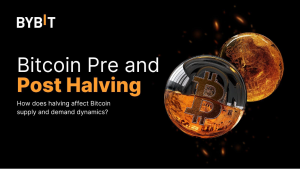FX is the collateral-free investment that Britain may turn to as banks pounce on property investors, forcing them into insolvency – Op Ed
Thirty years ago, during the time of the first real economic boom in Britain since the second world war, a previously dis-empowered British public became a self-empowered investing public almost overnight. The preferred investment in the days of Margaret Thatcher’s entrepreneurial 1980s was property, and not just the purchase of a home to live in, […]

Thirty years ago, during the time of the first real economic boom in Britain since the second world war, a previously dis-empowered British public became a self-empowered investing public almost overnight.
The preferred investment in the days of Margaret Thatcher’s entrepreneurial 1980s was property, and not just the purchase of a home to live in, but further properties for the purposes of investment.
Banks began to offer commercial mortgages to retail customers, with the major difference between a residential mortgage and one designed for newly well-heeled property investors, called a ‘buy to let’ mortgage, usually meaning that the loan-to-value ratio was 70% instead of 90% due to the added risk of commercial lending to retail customers.
Property ownership became the flavor of the decade and the stale whiff of socialism gave way to a vibrant air of proud capitalism as domestic homes (especially in London) became commodities rather than abodes, and rocketed in value.
“You cannot go wrong with property” so many people exclaimed. My reluctance to agree wholeheartedly did not mark me out as a dissenter, but as someone who only agrees with part of that ideology.
You more often than not cannot go wrong with property, as long as you own the lion’s share of it, and not the bank.
The easy, carefree granting of endless credit to private individuals with no security and no prior business experience led to wreckless and unsustainable credit exposure, and to private individuals boasting about the value of their ‘portfolios’ when actually they did not own them, nor did they have the means to pay for them.
Relying on rental income to pay the interest alone on a vast mortgage – and in some cases several vast mortgages – is gambling, and not investment.
In 2008, the crunch came and the entire British lending system collapsed, and was largely bailed out by the taxpayer.
The national economy has been licking its wounds ever since, and just as it may well appear that London is booming again, there is a nasty monster lurking in the closet.
Property investment companies that have picked up large portfolios and had amassed debt but had managed to leverage other investments in order to keep the wolf from the door and remain in business, or had experienced a depreciation of their properties creating negative equity during the economic crisis, are now a massive target for banks wishing to collect their debts as property values have gone up.
Property with a mortgage and other secured debt is therefore a MILLSTONE and not a potential nest egg
Today, as the new business year begins, London’s property has boomed in value so much that banks are now actually putting property investment companies into insolvency in order to grab their asset and pay back the debts. Indeed 346 property investment companies have been made insolvent in the second quarter of 2015 compared to just 154 in the same period four years earlier – purely due to banks pouncing on companies whose investments have grown in value.
With leveraged, liquid investment such as FX, this cannot happen.
When viewed as an investment, FX is the polar opposite of property. It is liquid and instant, rather than physical. Instead of borrowing to fund its purchase, the ‘loan to value’ aspect is the other way round. The investor puts in a small percentage of the real market value and instead of taking on an actual liability with repayments, the leverage amplifies the investment in the real market place with no risk exposure to a retail investor – the likelihood of a broker being able to collect a negative account balance from a client trading on an A-book basis is very minimal indeed, and most brokers in Britain are putting most of their order flow through on a B-book basis so exposure to negative balance is highly unlikely.
There used to be a disclaimer on all British investment product advertisements which read “Your investment may go down as well as up.” It is perhaps fair to say that this, in today’s world, should read “Your investment may go down as well as up, and if it goes up we will put you into insolvency.”
The more cynical pundit may consider this move by the large banks as a final means of clearing its home-grown debts and grabbing appreciating assets in order to do so before packing their bags and heading to Hong Kong and Singapore.
Who’d have thought….
Photograph: America’s banks sold foreclosed homes very cheaply during financial crisis to recoup some debts, whereas Britain’s banks waited until the economy flourished, house prices boomed and then pounced on owners, forcing them into insolvency.









